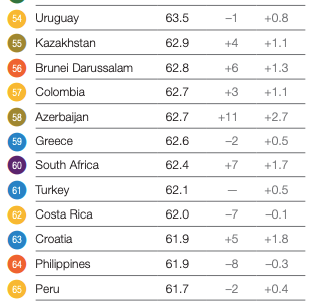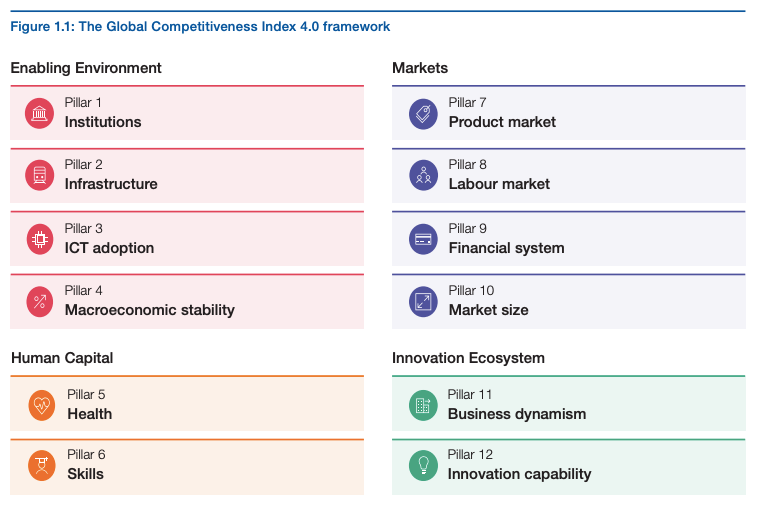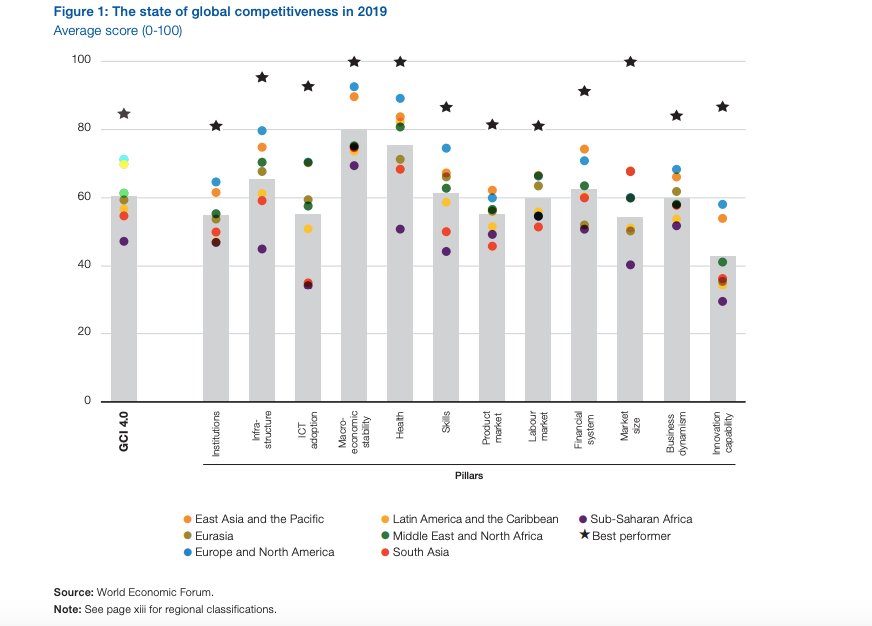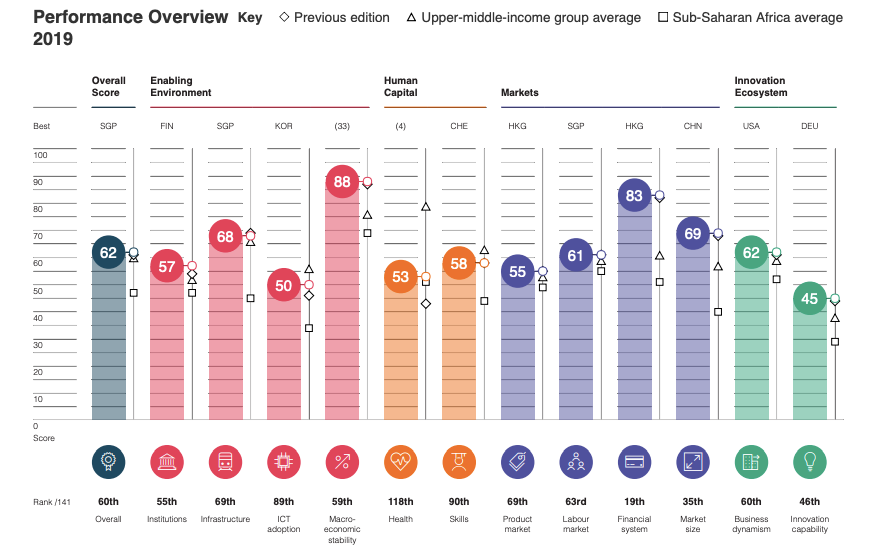South Africa improves its ranking in global competitiveness
Every year the World Economic Forum publish their Global Competitiveness Index report - this year's index post South Africa +7 points higher than last year.
Every year the World Economic Forum publish their Global Competitiveness Index report - this year's index post South Africa +7 points higher than last year.

The index ranks countries based on a framework that assesses progress within 12 pillars or dimensions.

On just about every pillar in the index - sub-Saharan Africa scores well behind every other region.

'This year’s Global Competitiveness Report is the latest edition of the series launched in 1979 that provides an annual assessment of the drivers of productivity and long-term economic growth. With a score of 84.8 (+1.3), Singapore is the world’s most competitive economy in 2019, overtaking the United States, which falls to second place. Hong Kong SAR (3rd), Netherlands (4th) and Switzerland (5th) round up the top five.' - via
For a tiny country like Singapore - being ranked #1 is a pretty big deal. How they did it was the topic of a previous blog post here on Cherryflava.
How did South Africa do?
In detail - this the country specific feedback on South Africa's progress:
'South Africa’s competitiveness has regained momentum after the recent political landscape shift and climbs 7 places, to 60th place.
The country is a regional financial hub (83.2, 19th), with well-developed equity, insurance and credit markets, all achieving a score of 100. South Africa has also developed one of the most advanced transport infrastructures in the region (58.7, 45th) and is among the top countries in Africa for market size (68.6, 35th).
Beyond these established strengths, health conditions—though starting from a low base (118th)—are better, adding 3.3 years to the average healthy life expectancy since the last assessment. Institutional quality has also improved (+3.3 points, 55th) but unevenly.
Some aspects of this category have achieved remarkable progress, including restored balance of powers across different state’s entities (+7.7 points, 16th), enhanced administrative efficiency of the public sector (+6.3, 39th) and corporate governance (+3.3, 26th).
By contrast, other aspects continue to perform poorly: security (42.7, 135th) remains one of the main restraints to South Africa’s competitiveness, while transparency (43.0, 62nd) and government adaptability to change (39.6, 100th) are also below par. Further, South Africa’s competitiveness is being held back by relatively low business dynamism (61.9, 60th), which is inhibited by insolvency regulation and administrative burdens to start a business, and a persistently insufficient labour market flexibility (52.1, 111th). For instance, flexibility of wage determination is limited (41.1, 134th) and hiring foreign labour is difficult (40.6, 123rd).
South Africa’s sensitivity to exports of mineral resources is likely to hit the country’s economic outlook and will make reducing unemployment (projected above 27%) challenging. Against this backdrop, structural reforms are needed to re-ignite the economy and offer better opportunities to a larger share of South African citizens.'

We've said it before, but will happily say it again - the narrative needs to shift radically from 'job creation' to 'brand and business creation'. Considering the long-term flat global economic growth forecast for the foreseeable future, employment from big business is set to continue to be stagnant. Far more, therefore, needs to be done to create the conditions under which small business can start and flourish.
Related: 9 South African small business opportunities for 2020 - Cherryflava

